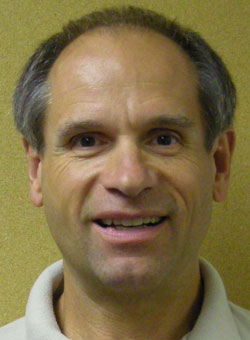 |
Peter Pellerito |
With the weather warming up, it’s a good idea to know the signs of heat-related illnesses, such as heat cramps, heat stroke and heat exhaustion.
Warning signs that can signal your body is reacting to excessive heat include:
- muscle cramps;
- nausea or vomiting;
- weakness;
- headache;
- dizziness; and
- confusion.
“If people recognize the signs of heat illness, they should stop exercising immediately, rehydrate and cool off,” said Peter Pellerito, fitness specialist at the Center for Healthy Living.
“It’s important to stop generating heat, get out of the sun, and into a cool environment.”
|
|
Besides drinking, one way to cool down is to create artificial perspiration by wiping yourself down with fluids while resting, if possible, in the path of circulating air such as in front of a fan, he said.
But the best approach is to take precautions before exercising, Pellerito said.
“Whenever you exercise in hot weather, you want to go into it hydrated,” he said. “As little as 2 percent fluid loss can hamper performance.”
And unless you exercise for more than an hour, don’t worry about sports drinks or electrolyte-replacement drinks – drink 8-12 ounces of water 20 to 30 minutes prior to activity and six to 10 more ounces every 30 minutes.
Also, don’t rush out and try to log five miles under a hot sun if you haven’t run in the heat for a while.
“Just like we adapt to exercise in terms of getting fitter with training – slowly, over time – our body adapts to heat and humidity,” Pellerito said. “There’s an adaptation period. We get conditioned – somewhat, at least – to heat and humidity by exposing the body gradually to exercising in that new environment.”
Another tip: Weigh yourself before and after exercise, Pellerito suggests.
“That way, you know how much fluid you have to get back into you. For every pound lost during exercise, you need to drink 16 ounces of fluid to replenish that.
“If you’re not urinating, or the urine is concentrated, you need more fluids.”